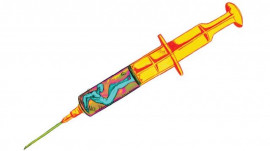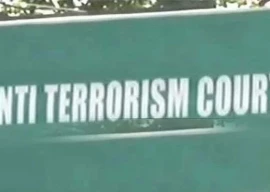
Mohammad Yousuf was looking forward to October 19, 2010. After months of searching for a job, the 18-year-old had finally been employed at a soap factory in SITE town and it was his first day at work as a daily wage earner. But as he returned to his home in Lyari with his first pay of Rs150 in his pocket, Yousuf was kidnapped by unidentified men. Tortured for days, he is now too traumatised to return to work now.
“I was standing at the bus stop when two men in a hi-roof truck kidnapped me and two other Pakhtun men,” narrates the young Baloch. “They pushed us in and blindfolded us. We didn’t know where we were being taken but landed up in a room where the men tortured us. They kept beating us until we told them where we lived and which party we belonged to.”
At first, Yousuf attempted to lie, saying that he was a resident of the Gul Bai mohallah nearby, but the men beat him until he told them that he lived in Lyari. On learning that he had no affiliation with any political party, the kidnappers dropped him near the Government College of Technology in SITE Town.
“I don’t know what happened to the other two men though,” he says.
Yousuf’s neighbour, Abdur Rehman, was not as lucky. His family received his dead body in the middle of the night in a police van because ambulances refused to enter Lyari. The neighbourhood is generally notorious for its gangsters but, on October 19 the police were particularly cautious because more than 12 men had been gunned down in the Sher Shah scrap market. Rumours circulated that the attack was carried out by a group of Baloch men, mostly from the People’s Aman Committee, based in Lyari Town. The attack led to unrest in the entire city followed by a shutter-down strike the following day.
“Why are they after us? What have we done to deserve this?” asks Rozatun, whose son Mohammad Qasim was killed along with Rehman. Qasim and Rehman were both residents of Shah Baig Lane in UC-6 of Lyari and worked in different shops in Saddar’s Bohra Pir market. Neither of them was affiliated with any political party nor were they related to anyone who belonged to one. Yet they were picked up and killed, their bodies dumped on Akbar Road near Radio Pakistan.
“They shot him five times: one bullet pierced his eye, one his temple, one passed through his neck and two more shots were fired on his knees,” says Qasim’s uncle, Yar Mohammad. “Why would they kill him so brutally? What was my nephew’s fault? His daily routine was going to his shop at 11:00 am and returning home at 7:00 pm. He would just go to the mosque to say his prayers. He was a shy 17-year-old. What could he have done at this age to deserve such a death?”
Qasim and Rehman’s family are also bitter that none of the sitting ministers paid a condolence visit or offered any compensation. “We have always been loyal to the PPP, but where are their leaders when we need them? If they were too busy to visit, couldn’t they send a condolence message like they send out those useless press statements every day to the media?” Rozatun asks.
However, for the likes of Qasim, their daily bread and butter matters more than petty politics. But his brief experience with the kidnappers has left him too traumatised to resume work, leaving his family of eight members with no food on the table.
“My dark complexion, this Afro-textured curly hair, is an instant proof of my Baloch identity,” he says, staring hard at the floor. “I was lucky they only tortured me this time. Now after the Shershah incident they will kill me… like my neighbour.”
“I don’t have the heart to see my son’s dead body,” says mother who dreads that he could be the next victim of target killings in the city. “Pakistan is now turning into a qabristan…this needs to stop. We can’t bury more innocents.”
Published in The Express Tribune, Sunday Magazine, April 17th, 2011.

1731479848-0/Elon-Musk-and-Vivek-Ramaswamy-and-Donald-Trump-(1)1731479848-0-165x106.webp)















COMMENTS (1)
Comments are moderated and generally will be posted if they are on-topic and not abusive.
For more information, please see our Comments FAQ